- Home
- Jennifer Ashley
Alec Mackenzie's Art of Seduction Page 4
Alec Mackenzie's Art of Seduction Read online
Page 4
Lady Flora’s frown turned to a scowl. She snatched the paper from the easel, the clips that held it down flying. She shoved the picture at Mr. Finn. “This much skill?”
Mr. Finn gazed at the picture first in surprise, then with admiration, and finally in dismay. “Mm,” he said grimly. “I think we’ll abandon anatomy and work on bowls of fruit.”
If Celia did have a gift, it was of being able to detach herself from a situation, to see it with the eyes of practical sense instead of emotion. Any of her friends would have burst into tears if Lady Flora and Mr. Finn had looked in such disparagement at her drawing. Celia only watched the two of them, trying to decide what had upset them about it.
It wasn’t Celia’s talent, or lack of it, she surmised. They weren’t condemning the likeness itself, but the fact that she’d caught it.
Why? If Mr. Finn were truly an enemy Highlander in disguise, why on earth would he be here in Lady Flora’s grand house on Grosvenor Square, teaching art to ladies of the ton? And why would Lady Flora, of all people, invite him to stay?
It was an oddity, and oddities intrigued her.
Lady Flora swiftly rolled the drawing into a scroll. “I will keep this for you, Celia. You must be off now.”
As Lady Flora turned away, Mr. Finn caught Celia’s gaze. His eyes held understanding and amusement, recognition that both of them were trapped in Lady Flora’s snare. Celia flashed a smile at him, acknowledging, and he gave her a swift wink.
Lady Flora turned back, and they both immediately assumed neutral expressions. Out of the corner of her eye, Celia saw Mr. Finn’s lips twitch.
Lady Flora waved at Celia with the rolled paper. “Off you go, Celia. Rivers will see you out. Be here tomorrow morning, promptly at eight. Promptly, mind.”
Celia curtsied and then held out her hand. “Might I take my drawing, so I can study it in the meantime?”
“No,” Lady Flora snapped, then she deliberately softened her tone. “No, dear Celia. I will keep it for you, and when you are finished with your instruction, we’ll have a little exhibition in my salon. You will like that, won’t you?”
Celia was instantly on her guard. When Lady Flora gushed and pretended to be kind, it meant she was up to something.
When Celia didn’t answer, Lady Flora became icy once more. “Your mother wishes it,” she said. “Go.”
There was nothing for it. Celia gave her another curtsy and reached for her portfolio, but Lady Flora closed her eyes in despair and shook her head.
Celia gave up and moved quickly across the room. She turned back at the door and found Lady Flora’s glare hard on her. A basilisk had a stare like that.
Mr. Finn had turned away to replace the pencils in their box, his shirt clinging to his back. The sensation of his nearness when he’d sat close to her was still vivid.
He bent to the box, as though making sure each pencil rested precisely in its given slot. He did not look around, did not say goodbye. Mr. Finn was a drawing master and Celia was a duke’s daughter, and Lady Flora would hardly approve of any familiarity.
Why then, had Lady Flora said nothing when she’d marched in and found Mr. Finn sitting before Celia without his shirt?
So many puzzles to solve. Celia closed the door and walked to the landing, making certain her heels clicked loudly on the polished floor.
To Celia’s relief, Rivers, Lady Flora’s stern butler, was nowhere in sight. Celia paused at the top of the stairs, slid off her shoes, and hurried on quick tiptoes back to the studio door.
She pressed her skirts to silence and leaned to put her ear near the keyhole. Eavesdropping wasn’t genteel, but Celia had decided long ago that a young lady could learn much if she didn’t worry about gentility every single moment of her life.
Chapter 4
What were you thinking?” came Lady Flora’s voice, clear and ringing.
“I told her to draw my arm.” The Scottish accent Mr. Finn had been holding back flooded out. Celia liked his voice better like this, gruff and growling, holding the rawness of his native land. “I’m thinking she’s not an obedient lass.” He sounded approving, which made Celia flush, pleased.
“What if she’d showed this to her father?” Lady Flora snapped. “You are reckless—I should have known you would be. So much like your brother.”
“Her father has never met me,” Mr. Finn answered without heat. “And I dinnae look so much like Will. I only ever looked like—”
The words cut off abruptly, a sound like a cough ending his speech.
“I know.” Lady Flora’s voice softened, something Celia had never heard in her before. Even when Lady Flora’s daughter had died, she had been, if anything, colder and more brittle than ever.
“The lass shouldn’t come back here,” Mr. Finn said. “We’ll find another way.”
“Nonsense.” Lady Flora’s strident tones returned. “If you do everything exactly as I say, all will be well. Now—I should burn this.”
Celia couldn’t help her tiny gasp. The idea that Flora would stuff the drawing she’d just done into the fire cut off her breath.
When Mr. Finn’s eyes had gazed at Celia out of the page, her heart had squeezed into a point of pain. It was the best portrait she’d ever drawn, and she knew it. More than that, she didn’t want to lose the image of him, the essence she’d captured. If she was never allowed to see the man again, at least she’d have that.
“No.” Mr. Finn’s word was a command, quick and sharp. “I’ll take it. Best you be about your business, woman.”
Celia heard the sound of paper on flesh—presumably Lady Flora had slapped the scroll into his hand.
“Very well. And don’t call me ‘woman.’”
Mr. Finn’s laughter rang out. “It’s what ye are, underneath all that ice. By the way, I sacked the nursery maid.”
“I beg your pardon?” Lady Flora’s anger turned to bewilderment. “Why?”
“She was trying to poison my wee one with gin, that’s why. I told your under housemaid, Sally, t’ take over. She’s a bright girl, obviously has looked after children before. Do ye even talk to your servants before you take them on?”
“Of course I do. The nursery maid was a recommendation. Damn and blast.”
“Ye take care of the rest of your house. I’ll take care of me daughter.” Mr. Finn’s voice held a growl. “Agreed?”
“Yes, yes. Whatever you like.”
Celia blinked. She’d never heard Lady Flora capitulate about anything in her life. The atmosphere in the room had changed—Mr. Finn no longer sounded like a pitiable gentleman grateful for a job, but a man who didn’t fear telling Lady Flora exactly what to do. And Lady Flora was letting him, if grudgingly.
How very curious.
Mr. Finn’s footfalls approached the door, and Celia realized she’d dallied too long. Gathering her skirts, she scurried for the staircase and snatched up her shoes. She went down the stairs as quickly as she dared, clutching the railing to keep herself from tumbling headlong. Rivers materialized on the first-floor landing, looking up as Celia hurried down, his haughty brows rising.
The main staircase in Lady Flora’s mansion gave onto landings that wrapped around each floor. Chairs had been placed along these galleries in case Lady Flora’s houseguests grew weary climbing up to their bedchambers and had to pause and rest. The wide sweep of Celia’s gown caught on the leg of one of these graceful chairs and sent it tumbling.
Celia tugged at her overskirt the fallen chair had pinned to the floor and heard the India cotton tear—her mother would have a thing or two to say about that. Two footmen materialized beside her, untangled the skirt, and righted the chair.
“Are you well, my lady?” Rivers asked from below.
“Yes, yes.” Celia jerked her skirt into place, plunked onto the chair, and thrust her high-heeled slippers onto her feet. She continued her journey down the last flight more sedately, praying her shoes stayed on her feet.
Celia knew Mr. Finn watched from above eve
n before she reached the ground floor and looked back up. He stood four floors above her, his large hand gripping the gallery railing, his dark red hair loose and tumbling about his face.
He remained unmoving, not acknowledging her, but Celia knew he knew she’d been listening at the door. Knew she’d heard all he and Lady Flora had discussed.
But he did nothing, said nothing. Celia sent a smile upward and lifted her hand in a brief farewell. “Good morning, Mr. Finn,” she sang out, then she turned for the front door, striving to move with dignity.
Mr. Finn did not answer. Celia felt his eyes on her as a maid helped her into her wraps and she ducked out of the house.
A sedan chair waited on the pavement—because of course a duke’s daughter could not be allowed to walk the hundred feet around the square to her father’s house. Celia thanked the bearers for waiting, and the footman who helped her in, and the second footman who came out with her portfolio and tucked it into the chair beside her as she settled herself.
Celia glanced up at the house, finding the window that would give onto the fourth floor studio. She couldn’t see anything but sun and clouds reflected on glass, but she knew in her heart that Mr. Finn watched her go.
Once darkness settled on the streets, Alec Mackenzie departed Lady Flora’s house through its back garden and entered a plain black coach at the end of the mews. Not long later, he left Mayfair and then St. James’s behind, the coach heading eastward along the river.
At Fleet Street, Alec descended from the coach and melted into the lanes south and east of it.
He’d dressed in dark breeches, plain coat, and sturdy shoes, and pulled his hair into a tight queue, letting the darkness and his hat hide the red of it. Thus garbed, Alec looked like every other working man walking these streets. He was confident that he didn’t have much chance of being spotted as a savage Highlander, because most Londoners, especially in this area, had never seen one. They’d met Scots, of course, but those were mostly Glaswegians and other Lowlanders who came looking for work at the docks and in the factories.
Alec was on his way to meet such a Lowlander in a tavern near the river. The man had been another of Will’s contacts and might have some idea about what Will had been up to.
The tavern was typical of taverns around dockyards everywhere—Paris, London, Edinburgh—didn’t matter. A dark interior lit by few lights, a large fireplace with an indifferent fire struggling to burn, plank tables scarred from years of tankards and fists being pounded on them, rushes on the floor that smelled as though they hadn’t been swept out and replenished in weeks.
Two harried barmaids sailed among the patrons, swinging away from fondling hands with the ease of long practice. Both caught sight of Alec—one sent him a surly look, and one beamed a smile.
He sent the friendlier woman a nod and seated himself at a relatively empty end of a table. Just his luck, it was the surly barmaid who flowed by and demanded to know if he wanted ale.
“Please,” Alec answered. His plan was to speak as little as possible, so his accent wouldn’t mark him. Best to sip ale, look unassuming, and wait for his man.
The barmaid gave him an even more sour look and marched away.
Celia Fotheringhay. The name broke into Alec’s thoughts, followed by the memory of her hazel eyes, the fearless way she’d assessed him, her interest when he’d begun to instruct her. He’d watched those eyes sparkle with fervor when she’d began drawing in earnest, the passion catching her up before she realized it.
The drawing she’d done of his face had been quite good. It was as though he’d peered into a mirror or, heartbreakingly, at his twin, Angus, gone forever.
That was the trouble. If the wrong person saw the drawing, Alec Mackenzie was done for.
Lady Celia had caught not only his likeness but showed him for what he was—a Highlander, strong and arrogant, unbroken though Butcher Cumberland had done his best to erase his family from the earth. Celia hadn’t sketched in a bonnet and claymore, but she might as well have.
He’d tucked the drawing among his things in his small bedchamber, keeping it safe. Looking at the picture made him remember the truth of himself, and also the pretty young woman who had sketched it.
No dalliance there, though. Celia was the means to an end, the daughter of a man who might know Will’s fate. If Alec were cruel, he’d consider using pretty Celia to take his revenge on her ducal father—he admitted the thought had danced in his mind before he’d met her. But the lady was an innocent, ignorant of what had truly happened in the Jacobite Uprising, untouched by it. There was no hatred of all things Scots in her.
An even crueler man would rejoice that she was such an innocent—all the better weapon for tearing down her father.
But Alec was not cruel. In fact, he thought of himself as genial and pleasant, more inclined to flirt with a lovely woman than use her in a dastardly plot of vengeance. Lady Flora was more inclined to the dastardly. He’d have to tell her to keep her scheming fingers off the lovely Celia.
Alec’s thoughts were broken when a man sat down next to him and gave him a sullen nod. He was dressed no differently than any in the tavern—linen shirt, homespun breeches, black shoes, worn coat.
But he was Scots, not English. He had the bearing that many Scots in London did, that he was in this country only because he needed the work, that he’d rather be toiling on his farm up north.
The sunny-faced barmaid brought the man a tankard and also carried one for Alec. She gave Alec a warm look and a shimmy of her skirts, but Alec wasn’t in the mood for a dalliance. The barmaid departed, looking in no way unhappy that her other services would not be required.
The Scotsman had dark hair scraped into a queue, a rather flat face, and light brown eyes. He took a pull of his ale, grimaced, and nodded at Alec.
“All right?”
“Aye,” Alec answered.
They slurped in silence. The ale was watery and tasteless, but that was usual for cheap backstreet taverns. The company wasn’t much better—tired men who wanted to drink and then crawl off to their beds.
The man set down his tankard after another long drink and motioned for Alec to follow him. Alec dropped coins for the ale on the table and walked out with him into the night.
They strolled in silence through dark streets lit only by those fortunate enough to have lanterns to guide them. These occasional lamps bobbed along like fireflies in the fog, winking out as their owners reached their destinations and ducked indoors.
Alec’s man led him with surety down streets Alec wouldn’t have walked alone, and so to the river. Alec had never been through these lanes before but his memory stored up each one, his ability to recall exact details of a place after seeing it only once ensuring he could reach safety in case this man proved to be an enemy. He wouldn’t tear around panicked and lost.
The Thames stank, the shingle that lined the shore just as rank. Boats plied the water, their few lights swaying. Alec could just make out the bulk of London Bridge with its pile of houses on top a way down the river, a smudge against the night.
The man halted. Alec kept his hand on his knife, which he could draw in an instant, but his guide did not seem inclined to attack. He spat on the rocks. “Bloody mucky city,” he growled in broad Glaswegian. “Stinks like a cesspit.”
“This river is a cesspit, lad,” Alec said. “All the shit gets dumped here. Before you start singing how beautiful and better smelling is our homeland, out with it, man. What do you have to tell me?”
The man spat again. “Heard of men being held,” he said. “Not tried, not killed, just held on to. Don’t know why.”
Alec drew a sharp breath then regretted it as the stench of rotten eggs filled his nostrils. He let it out again, forcing himself to remain calm.
“Held where?” he asked tightly.
The man shrugged. “Might be with a regiment. Might be in a big house of some aristo. Or maybe of a nabob.”
Nabobs, those interesting men who traveled
to India or the islands of the Caribbean, made piles of money off the backs of slaves, and came home to live like aristocrats but without the title and ancestry. Alec’s father had much to say about nabobs, most of it obscene.
A big house—like the estate of a duke? “Whose house?” Alec pressed.
“Dunno.”
The man fell silent. Alec waited, but that seemed to be the extent of his knowledge.
Well, it was more than he’d had before. A house, with men held in it. Might be Scotsmen, Frenchmen, or men from the lands of China, for all Alec knew, and these men might simply work there.
But it was something, a tendril to grasp.
The Glaswegian watched Alec, beginning to glower. He’d delivered the goods—now he expected to be paid.
His information was likely worth nothing, but if Alec didn’t pay for it, word would get around, and Will’s contacts might be less than eager to seek him out.
Alec slid his hand into his coat pocket to find the one coin he’d brought for the purpose. He’d carried money for the ale and for this, not foolish enough to walk about with all his cash in backstreet London.
The moment Alec’s hand came out of his pocket, he heard a crunch of boot on gravel, the only thing that saved him.
He ducked out of the way as a cosh came down, the breeze of it brushing his face. Alec dropped the coin and grabbed his dirk, coming around with it up and slashing.
He heard a grunt and a curse, felt his knife bite. The darkness was nearly complete by the river, but the fog glowed faintly with moonlight, letting Alec see the glint of a blade, the swing of another cosh. He counted three men attacking them with deadly intent.
Alec’s companion grunted and went down. At the same time, Alec took a punch to his middle, which doubled him over, sending him down on one knee. He dodged as a long knife came at him, and rolled to his feet, striking with his own knife.
More grunts, curses, rancid breath as a man got under Alec’s reach, and Alec found knuckles in his face. His head snapped back, but he jabbed at the same time, rewarded with foul words in a broad London accent.

 Grant
Grant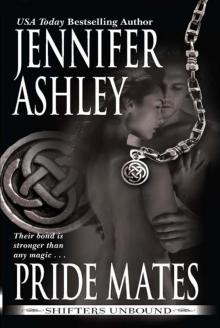 Pride Mates
Pride Mates The Duke's Perfect Wife
The Duke's Perfect Wife Scandal Above Stairs
Scandal Above Stairs White Tiger
White Tiger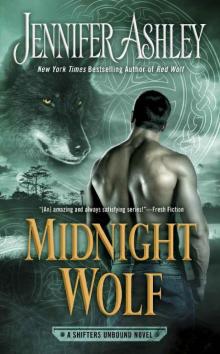 Midnight Wolf
Midnight Wolf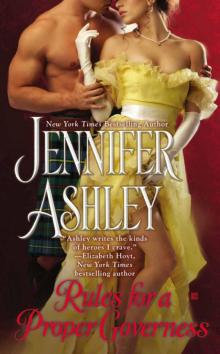 Rules for a Proper Governess
Rules for a Proper Governess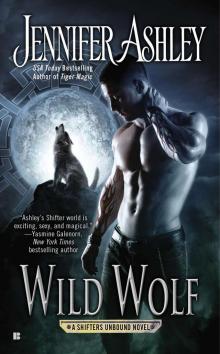 Wild Wolf
Wild Wolf Bad Wolf
Bad Wolf Lion Eyes
Lion Eyes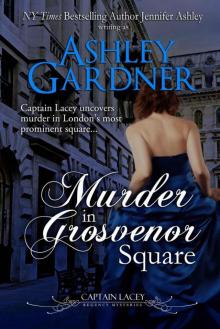 Murder in Grosvenor Square
Murder in Grosvenor Square The Untamed MacKenzie
The Untamed MacKenzie Wicked Deeds of Daniel Mackenzie
Wicked Deeds of Daniel Mackenzie Tiger Striped_Shifters Unbound
Tiger Striped_Shifters Unbound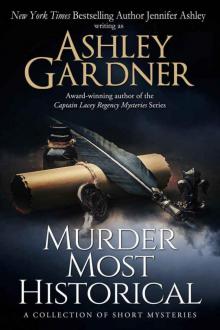 Murder Most Historical
Murder Most Historical Shifter Made
Shifter Made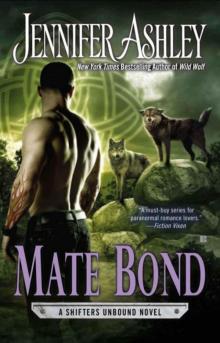 Mate Bond
Mate Bond Tiger Striped
Tiger Striped Bodyguard
Bodyguard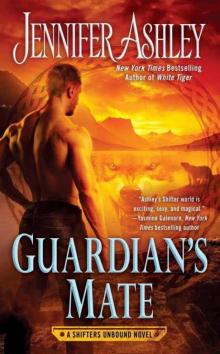 Guardian's Mate
Guardian's Mate From Jennifer Ashley, With Love
From Jennifer Ashley, With Love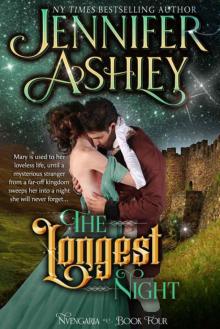 The Longest Night
The Longest Night The Stolen Mackenzie Bride
The Stolen Mackenzie Bride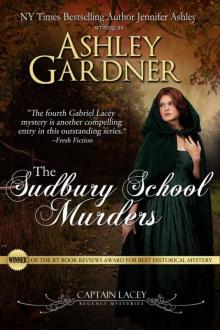 The Sudbury School Murders
The Sudbury School Murders The Care & Feeding of Pirates
The Care & Feeding of Pirates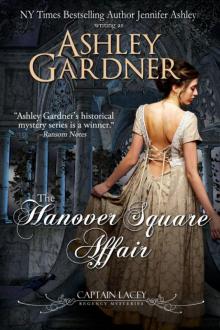 The Hanover Square Affair
The Hanover Square Affair Death Below Stairs
Death Below Stairs Wild Things
Wild Things Wild Cat
Wild Cat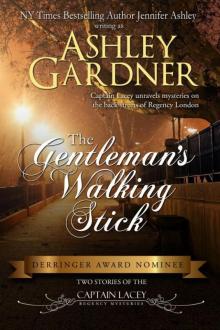 The Gentleman's Walking Stick
The Gentleman's Walking Stick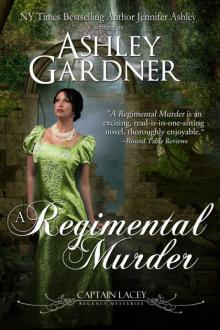 A Regimental Murder
A Regimental Murder Lone Wolf
Lone Wolf Forbidden Taste
Forbidden Taste Red Wolf
Red Wolf The Madness of Lord Ian Mackenzie
The Madness of Lord Ian Mackenzie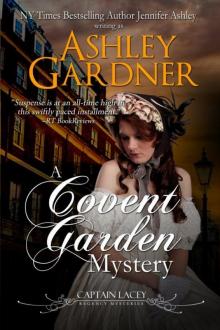 A Covent Garden Mystery
A Covent Garden Mystery The Pirate Next Door
The Pirate Next Door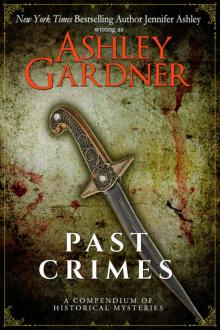 Past Crimes: A Compendium of Historical Mysteries
Past Crimes: A Compendium of Historical Mysteries Highlander Ever After
Highlander Ever After The Alexandria Affair
The Alexandria Affair A Shifter Christmas Carol
A Shifter Christmas Carol The Devilish Lord Will
The Devilish Lord Will Adam
Adam Kyle (Riding Hard Book 6)
Kyle (Riding Hard Book 6)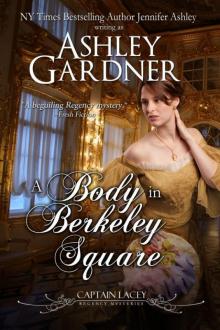 A Body in Berkeley Square
A Body in Berkeley Square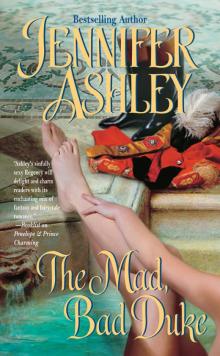 The Mad, Bad Duke
The Mad, Bad Duke Mate Claimed
Mate Claimed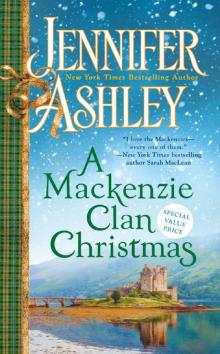 A Mackenzie Clan Christmas
A Mackenzie Clan Christmas The Seduction of Elliot McBride
The Seduction of Elliot McBride The Glass House
The Glass House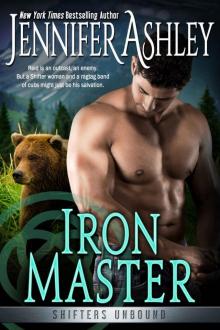 Iron Master (Shifters Unbound Book 12)
Iron Master (Shifters Unbound Book 12) A Mackenzie Family Christmas: The Perfect Gift
A Mackenzie Family Christmas: The Perfect Gift Scandal Above Stairs_A Below Stairs Mystery
Scandal Above Stairs_A Below Stairs Mystery Perfect Mate
Perfect Mate Murder in the East End
Murder in the East End Snowbound in Starlight Bend
Snowbound in Starlight Bend Hard Mated
Hard Mated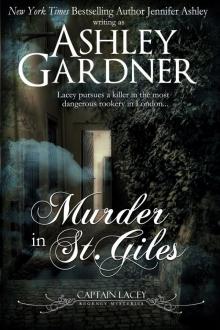 Murder in St. Giles
Murder in St. Giles Alec Mackenzie's Art of Seduction
Alec Mackenzie's Art of Seduction A MacKenzie Clan Gathering
A MacKenzie Clan Gathering Tyler
Tyler Lady Isabella's Scandalous Marriage
Lady Isabella's Scandalous Marriage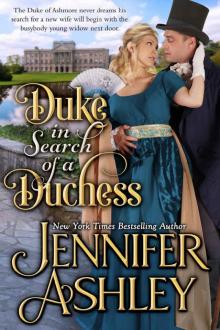 Duke in Search of a Duchess: Sweet Regency Romance
Duke in Search of a Duchess: Sweet Regency Romance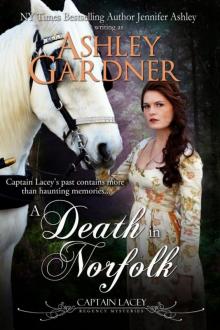 A Death in Norfolk
A Death in Norfolk Give Me One Night (McLaughlin Brothers Book 4)
Give Me One Night (McLaughlin Brothers Book 4)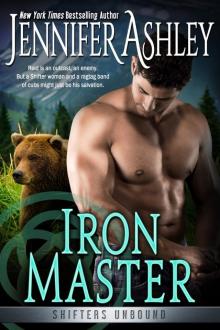 Iron Master
Iron Master The Many Sins of Lord Cameron
The Many Sins of Lord Cameron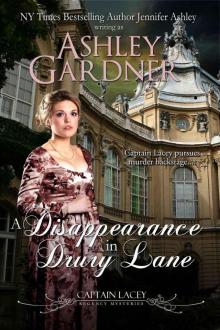 A Disappearance in Drury Lane
A Disappearance in Drury Lane Never Say Never (McLaughlin Brothers Book 3)
Never Say Never (McLaughlin Brothers Book 3) Death in Kew Gardens
Death in Kew Gardens Ross: Riding Hard, Book 5
Ross: Riding Hard, Book 5 Ray: Riding Hard
Ray: Riding Hard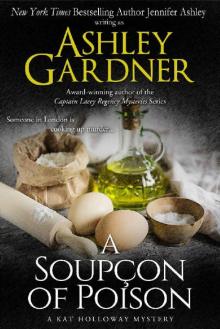 A Soupçon of Poison
A Soupçon of Poison Tiger Magic
Tiger Magic The Pirate Hunter's Lady
The Pirate Hunter's Lady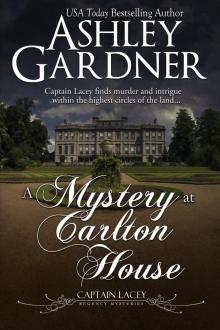 A Mystery at Carlton House
A Mystery at Carlton House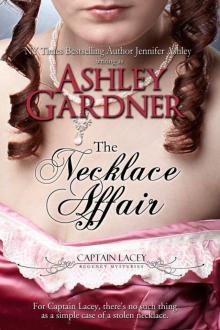 The Necklace Affair
The Necklace Affair Wolf Hunt
Wolf Hunt Scandal and the Duchess
Scandal and the Duchess Kyle
Kyle Why Don't You Stay? ... Forever (McLaughlin Brothers Book 2)
Why Don't You Stay? ... Forever (McLaughlin Brothers Book 2)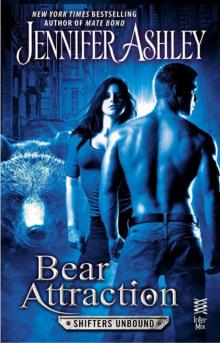 Bear Attraction
Bear Attraction The Gathering
The Gathering A Mackenzie Yuletide
A Mackenzie Yuletide Wild Things (Shifters Unbound #7.75)
Wild Things (Shifters Unbound #7.75) The Redeeming
The Redeeming The Seduction of Elliot McBride hp-5
The Seduction of Elliot McBride hp-5 Death at the Crystal Palace
Death at the Crystal Palace Mackenzie Family Christmas: The Perfect Gift (highland pleasures)
Mackenzie Family Christmas: The Perfect Gift (highland pleasures) Forbidden Taste: A Vampire Romance (Immortals)
Forbidden Taste: A Vampire Romance (Immortals) Care and Feeding of Pirates
Care and Feeding of Pirates Shifter Made (shifters unbound)
Shifter Made (shifters unbound) Dark and Dangerous: Six-in-One Hot Paranormal Romances
Dark and Dangerous: Six-in-One Hot Paranormal Romances The Duke’s Perfect Wife hp-4
The Duke’s Perfect Wife hp-4 The Seduction of Elliot McBride (Mackenzies Series)
The Seduction of Elliot McBride (Mackenzies Series)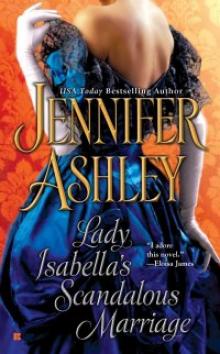 Lady Isabella's Scandalous Marriage hp-2
Lady Isabella's Scandalous Marriage hp-2 BodyGuard (Butterscotch Martini Shots Book 2)
BodyGuard (Butterscotch Martini Shots Book 2) The Wicked Deeds of Daniel Mackenzie hp-6
The Wicked Deeds of Daniel Mackenzie hp-6 Tiger Magic su-5
Tiger Magic su-5 The Madness Of Lord Ian Mackenzie hp-1
The Madness Of Lord Ian Mackenzie hp-1 Alec Mackenzie's Art of Seduction: Mackenzies (Mackenzies Series Book 9)
Alec Mackenzie's Art of Seduction: Mackenzies (Mackenzies Series Book 9) Mackenzie Family Christmas: The Perfect Gift
Mackenzie Family Christmas: The Perfect Gift Bodyguard (Shifters Unbound #2.5)
Bodyguard (Shifters Unbound #2.5)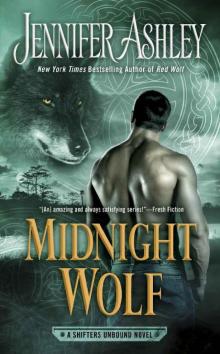 Midnight Wolf (A Shifters Unbound Novel)
Midnight Wolf (A Shifters Unbound Novel) White Tiger (A Shifter's Unbound Novel)
White Tiger (A Shifter's Unbound Novel) Cowboys Last All Night
Cowboys Last All Night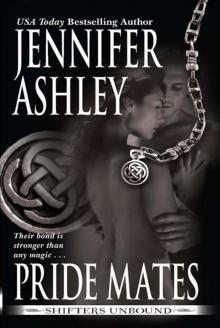 Pride Mates su-1
Pride Mates su-1 Hard Mated (shifters unbound )
Hard Mated (shifters unbound ) Bodyguard (shifters unbound )
Bodyguard (shifters unbound ) Snowbound in Starlight Bend: A Riding Hard Novella
Snowbound in Starlight Bend: A Riding Hard Novella The Untamed Mackenzie (highland pleasures)
The Untamed Mackenzie (highland pleasures) The Untamed Mackenzie (Mackenzies Series)
The Untamed Mackenzie (Mackenzies Series)![Highland Pleasures [6] The Wicked Deeds of Daniel Mackenzie Read online](http://i1.bookreadfree.com/i2/04/07/highland_pleasures_6_the_wicked_deeds_of_daniel_mackenzie_preview.jpg) Highland Pleasures [6] The Wicked Deeds of Daniel Mackenzie
Highland Pleasures [6] The Wicked Deeds of Daniel Mackenzie Lone Wolf (shifters unbound)
Lone Wolf (shifters unbound)![Shifters Unbound [5] Tiger Magic Read online](http://i1.bookreadfree.com/i2/04/11/shifters_unbound_5_tiger_magic_preview.jpg) Shifters Unbound [5] Tiger Magic
Shifters Unbound [5] Tiger Magic Tyler (Riding Hard Book 4)
Tyler (Riding Hard Book 4) Ross
Ross Bad Boys of the Night: Eight Sizzling Paranormal Romances: Paranormal Romance Boxed Set
Bad Boys of the Night: Eight Sizzling Paranormal Romances: Paranormal Romance Boxed Set From Jennifer Ashley, With Love: Three Paranormal Romances from Bestselling Series
From Jennifer Ashley, With Love: Three Paranormal Romances from Bestselling Series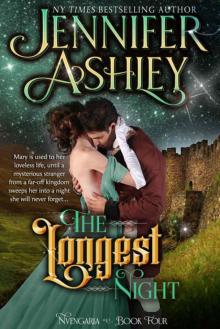 The Longest Night: Fantasy Romance (Nvengaria Book 4)
The Longest Night: Fantasy Romance (Nvengaria Book 4) The Many Sins of Lord Cameron hp-3
The Many Sins of Lord Cameron hp-3 Mate Claimed su-4
Mate Claimed su-4